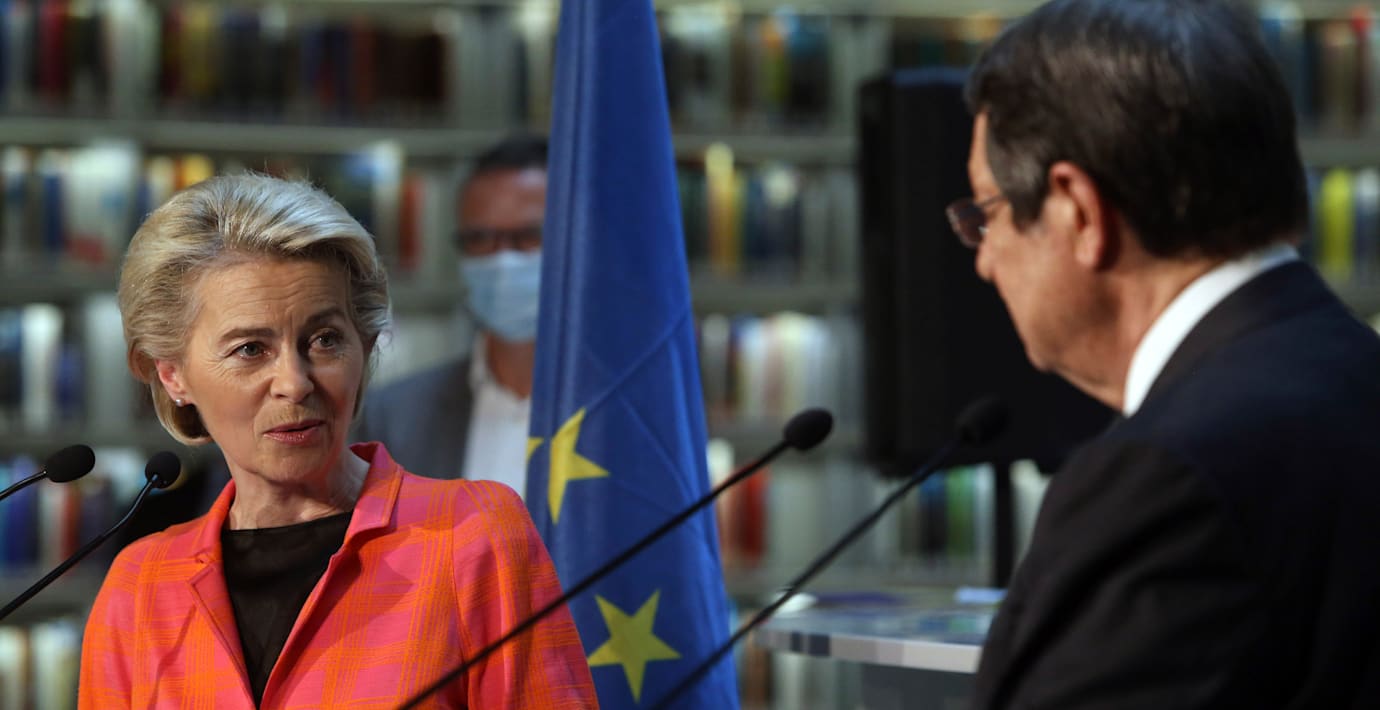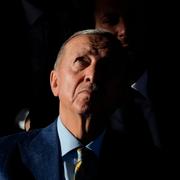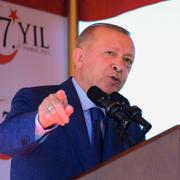
EU: Uteslutet med tvåstatslösning på Cypern
EU-kommissionens ordförande Ursula von der Leyen säger att Bryssel aldrig kommer att acceptera en tvåstatslösning för Cypern, uppger TT. Uttalandet kommer efter att Turkiet har nämnt en sådan lösning som ett villkor för att återuppta FN-stödda fredsförhandlingar om ön.
Leyen besöker ön och säger till journalister på plats att ”vi står fast vid det och är eniga, och det här är vad Cypern kan vänta sig”.
Läs tidigare (15 november 2020)
bakgrund
Konflikten på Cypern
Wikipedia (en)
The Cyprus dispute, also known as the Cyprus conflict, Cyprus issue, or Cyprus problem, is an ongoing dispute between Greek Cypriots and Turkish Cypriots. Initially, with the occupation of the island by the British Empire from the Ottoman Empire in 1878 and subsequent annexation in 1914, the "Cyprus dispute" was identified as the conflict between the people of Cyprus and the British Crown regarding the Cypriots' demand for self-determination. The British administration shifted the dispute from a colonial dispute to an ethnic dispute between the Turkish and Greek islanders.
The international complications of the dispute stretch beyond the boundaries of the island of Cyprus itself and involve the guarantor powers under the Zürich and London Agreement (Turkey, Greece, and the United Kingdom), the United Nations and the European Union, along with (unofficially) the United States.It entered its current phase in the aftermath of the 1974 Turkish military invasion and occupation of the northern third of Cyprus. Only Turkey recognises the Turkish Republic of Northern Cyprus, while there is broad recognition that the ongoing military presence constitutes occupation of territories that belong to the Republic of Cyprus. According to the European Court of Human Rights, the Turkish Republic of Northern Cyprus should be considered a puppet state under effective Turkish control.Although the Republic of Cyprus is recognised by the international community as the sole legitimate state, the north is under the de facto administration of the self-declared Turkish Republic of Northern Cyprus, on which the Turkish Armed Forces are stationed.The 1974 Cypriot coup d'état, initiated by the Greek military junta, was followed five days later by Turkey's invasion, leading to the occupation of the northern part of the internationally recognised Republic of Cyprus. In 1983, the Turkish Cypriot community unilaterally declared independence, forming the Turkish Republic of Northern Cyprus, a sovereign entity that lacks international recognition with the exception of Turkey, with which Northern Cyprus enjoys full diplomatic relations, in violation of Resolution 550, adopted on 11 May 1984 by the United Nations Security Council.
As a result of the two communities and the guarantor countries committing themselves to finding a peaceful solution to the dispute, the United Nations maintains a buffer zone (known as the "Green Line") to avoid any further intercommunal tensions and hostilities. This zone separates the southern areas of the Republic of Cyprus (predominantly inhabited by Greek Cypriots), from the northern areas (where Turkish Cypriots and Turkish settlers are a majority). Recent years have seen warming of relations between Greek and Turkish Cypriots, with officially renewed reunification talks beginning in early 2014, though the talks have continuously stalled and resumed multiple times since they began.
Omni är politiskt obundna och oberoende. Vi strävar efter att ge fler perspektiv på nyheterna. Har du frågor eller synpunkter kring vår rapportering? Kontakta redaktionen


